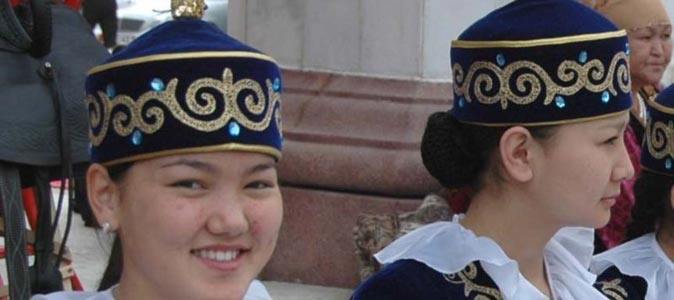
Kyrgyzstan’s parliament is poised to vote on legislation that would toughen the penalty for bride-kidnapping.
Report by BBC
The bill has caused heated debate, splitting the parliament and society into those who defend it as a tradition and those who see it as a violent crime.
The practice of bride-kidnapping is widespread in Kyrgyzstan. According to the ombudsman’s office, some 8 000 girls are kidnapped for forced marriage every year across the country.
The Women’s Support Centre (WSC) in Bishkek puts that figure even higher at almost 12 000 cases a year. Most of these cases happen in poor and rural areas.
WSC is part of the network that campaigns against bride-kidnapping. Zabila Matayeva (38) became a WSC volunteer last year after a family tragedy. Her sister, Cholpon Matayeva, was kidnapped for marriage by a husband who beat her frequently.
When she finally demanded a divorce after a decade of marriage, he stabbed her to death. He has been jailed for 19 years.
Cholpon barely knew her husband when he abducted her at the age of 19. She did not want to marry him but like many other women, she was afraid to leave him out of shame.
- Chamisa under fire over US$120K donation
- Mavhunga puts DeMbare into Chibuku quarterfinals
- Pension funds bet on Cabora Bassa oilfields
- Councils defy govt fire tender directive
Keep Reading
“It’s like a law, if you are kidnapped then you must stay,” Zabila said.
“(Cholpon) faced enormous psychological pressure from the groom’s relatives. They kept telling her that they too had been kidnapped, and [that] entering the house with tears leads to a happy life afterwards.
“She was lost. Cholpon thought her life would end if she left the [groom’s] house. This would bring shame on her and the family. She would need to leave the village. So she stayed.”
In many cases, the abducted woman is forced to stay for a first night that is effectively rape. After that, most women agree to get married, because otherwise they face huge stigma. If they decide to leave ,they can be treated as damaged goods, unable to re-marry.
Over the past year, activists from various women’s organisations have united in “Campaign 155”, named after the criminal code article on bride-kidnapping.
They have held bike rides, street sketches, seminars and other activities to draw attention to the current legislation. They bring cases like Cholpon’s to argue that no marriage can be happy if it starts from violence.
Under the existing law, a man faces a fine or maximum of three years in prison for abducting a woman for marriage against her will. The new bill proposes increasing that to seven years, after an initial suggestion to make it 10 years.
“It is outrageous,” says Rimma Sultanova from WSC.
“The punishment for cattle-stealing is 11 years and for abducting a girl is maximum three years.”
Ainuru Altybayeva, an MP who initiated the bill, says very few cases get to trial under the current legislation.
The main reason is that legal action starts only after a victim files a suit. However, this rarely happens because victims of bride-kidnapping do not generally want to draw attention to themselves.











